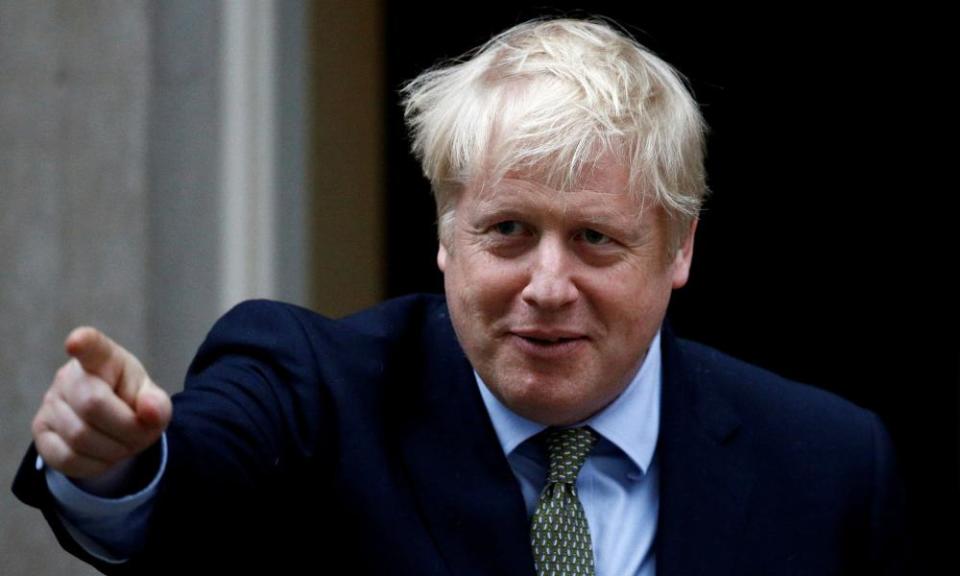Johnson can now deliver a ‘Brexit in name only’. Will he?

I have occasionally referred over the years to a parody of an editorial which a group of us at the Financial Times once concocted on a slow news day. It began something like this: “While in many ways we were against the Marxist manifesto on which the opposition campaigned, now that they have been elected the important thing is to make their programme work.”
Well, there has been no danger of any newspaper having to welcome a Corbyn government in such tones. However, an up-to-date version of that editorial might read as follows: “While we thought, and still think, that the new government’s plan to leave the European Union is bordering on the insane, the important thing now is to make it work.”
What would look especially crazy to a visitor from outer space is that, although the election was not formally a referendum on Brexit, it is clear that a majority of the electorate were Remainers. The problem was that their votes were fatally split.
But power is where power lies, and one of the more nauseating recent spectacles has been the people who, on no shortage of evidence, regard the prime minister as a charlatan, but nonetheless have been sucking up to him. The former chancellor George Osborne, architect of Britain’s damaging programme of austerity, managed on the Today programme to simultaneously flatter Johnson and (rightly) make it clear that parting from the EU’s regulatory regime would do great harm to industry.
Someone who, as far as we know, does not suck up to Johnson, or anyone else, is Dominic Cummings, the prime minister’s chief adviser. This is the man who has done his best to antagonise the civil service on which the government will rely heavily to deliver its programme.
What programme? You may well ask. In its campaign the Conservative and Brexit party was almost as wild as Labour in its promises for a splurge in public spending. I say “almost” because there is no doubt that, after carefully cultivating the City in the way that his predecessor John Smith did many years ago, shadow chancellor John McDonnell threw caution to the wind and simply promised too much.
Let us hope the optimists are right, and that Johnson has moved on from wanting to prorogue parliament in order to crash out
The British public saw through this: taken with general distrust of Corbyn, and the pathetic ambiguity of Labour’s Brexit policy, those wild commitments proved, as Labour canvassers reported, the last straw for “the person on the doorstep”.
But the Conservative and Brexit party also promised too much. Already, people who were hoodwinked into voting for it are being told that the axe is going to fall on “sacred cows”. This means that austerity will continue. A small omission from the Conservative and Brexit party’s manifesto was an admission, and details, of the cuts that would finance the extra spending. At least Labour was honest – or foolhardy – enough to say taxes would have to be raised.
The new government inherits from itself an almost stagnant economy – not least because of the shadow over investment cast by its own foolish Brexit policies – in which tax revenues are suffering. Landed with the best civil service in the world, Cummings wants to bring in “weirdos” to tell him what to do. I suspect that, as in past decades, outsiders will find the art of government more difficult than they think.
Which brings us to the key question: how to limit the damage. To my mind the only answer is to make our departure what the ultra-Brexiters object to most: Brexit in name only, sticking closely to the EU regulatory regime so that trade can flow freely.
If Johnson is serious about being a one nation Tory, this is the only way he can pull it off. He claims to be a “Brexity Hezza”. This, for younger and overseas readers, is a reference to Lord Heseltine, one of the stars of the Thatcher cabinet and a passionate Remainer, who believes in what we used to call “the mixed economy” and in the power of government intervention to help the private sector and, hence, society.
This is in marked contrast to the extreme-Brexiter vision of becoming the 51st US state and doing trade deals with other climate-crisis deniers such as India and Australia. Optimists think that, with his big majority, Johnson will be able to keep us closely aligned to Europe, by far our biggest market. Let us hope they are right, and that he has moved on from wanting to prorogue parliament in order to crash out of the EU without a deal.
Finally, a quiz question. Which newspaper declared on New Year’s Day 1973 – when we joined what became the EU – “EUROPE, HERE WE COME” adding that “for 10 years” it had “campaigned for this day” and that “we have not wavered in our conviction that Britain’s best and brightest future is in Europe”?
Yes, you have got it in one: the Daily Mail. Funny old world.

 Yahoo Finance
Yahoo Finance 